The Art of Collaboration
BUILDING TRUST, EMBRACING DIFFERENCES, AND CREATING SOMETHING NEW

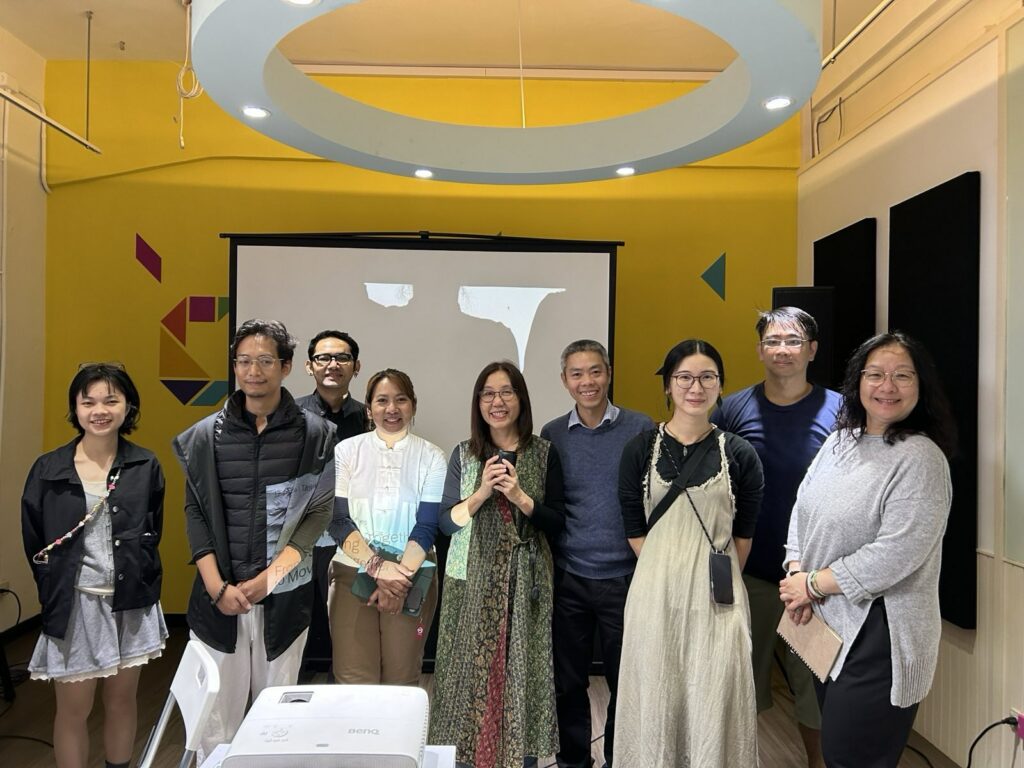
At MCH, we talk a lot about collaboration. It’s at the heart of what we do, and yet, every time we engage in it, we realize there’s still so much more to learn. Collaboration is not just about combining efforts—it’s about transformation. It’s about navigating differences, building trust, and sometimes, even letting go of parts of ourselves to create something bigger than what we could have achieved alone.
Recently, during our annual meeting with partners of the ASH (Art & Society Hubs) network – Asia in Taipei in December 2025, we’ve been exploring what it truly means to collaborate. We come from different cultures, different nationalities, and different organizational structures. Some of us work within structured institutions, while others operate in fluid, grassroots collectives. We carry different past experiences—some uplifting, some painful. And yet, here we are, moving forward together.
Collaboration is often seen as a straightforward process. But in reality, collaboration is much more complex. It requires trust, patience, and the ability to navigate differences in perspectives, cultures, and working styles. At ASH, we have been exploring what it means to collaborate across nationalities, disciplines, and lived experiences, and it has been a journey filled with both exciting moments and tough challenges.
What We Love (and Hate) About Collaboration
Collaboration is energizing. It fuels creativity, brings fresh perspectives, and opens up possibilities that we wouldn’t have seen alone. It’s about solidarity and shared learning. As one of our partners from Vietnam, Anh Tuan from Heritage Art Space shared,
“It’s like a marriage—you have to invest trust in the beginning, knowing that the journey will have its ups and downs.”
But let’s be real: collaboration can also be exhausting. It requires time, patience, and a willingness to compromise. Bad past experiences can create anxiety and hesitation. Language barriers and cultural differences sometimes lead to miscommunication—what we say isn’t always what others hear. When we work with others from Asia, we are quick to focus on what we have in common, but it can be easy to overlook the nuances; it’s also worth recognising that culture is much more than just the country you come from, it’s affected by your family, your education and training, your work experience, And power dynamics, whether we acknowledge them or not, shape our interactions in subtle and not-so-subtle ways. One of the biggest challenges we’ve discussed is Eurocentrism and unconscious biases in collaboration. Too often, existing models are shaped by Western ways of thinking, structuring, and operating. But what happens when we shift our perspective? When we center our own cultural and regional experiences to shape new, Asiacentric approaches that work for us and our communities? These are the questions we’ve been asking—and are still answering—together.
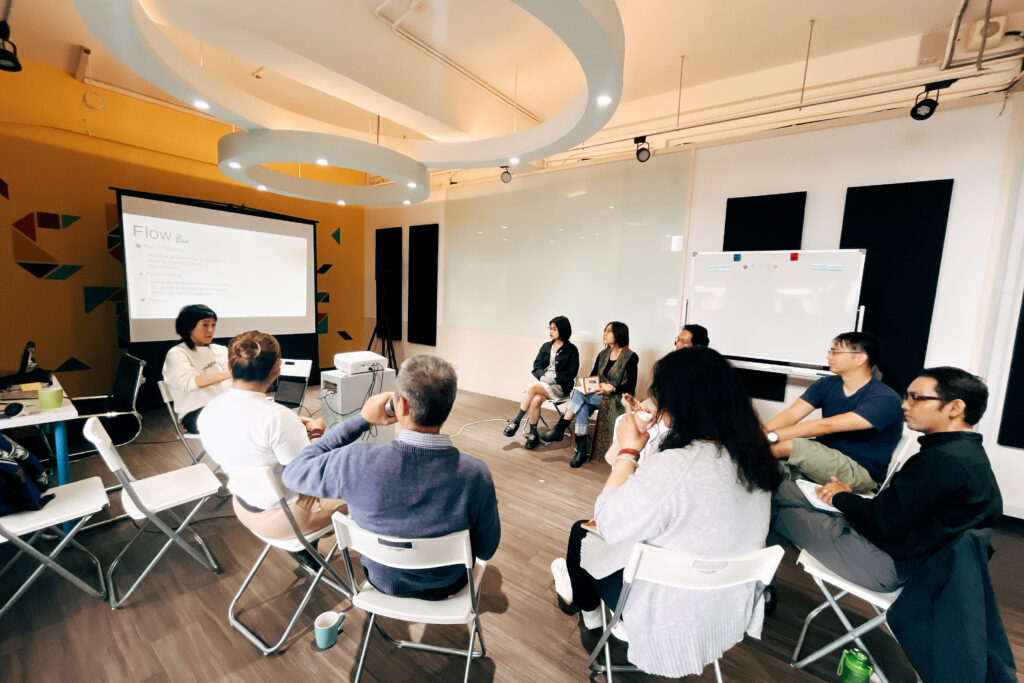
Letting Go to Build Something New
A common misconception about collaboration is that it’s just about adding different elements together—A plus B equals C. But true collaboration requires more than just merging efforts; it requires letting go. In order to create something new (C), we might have to let go of parts of A or B. At the same time, we also become both A & C or B & C—we evolve through the process.
This means stepping out of our comfort zones, questioning our own assumptions, and sometimes making compromises. But when collaboration works, it can lead to something greater than what any of us could have achieved alone.
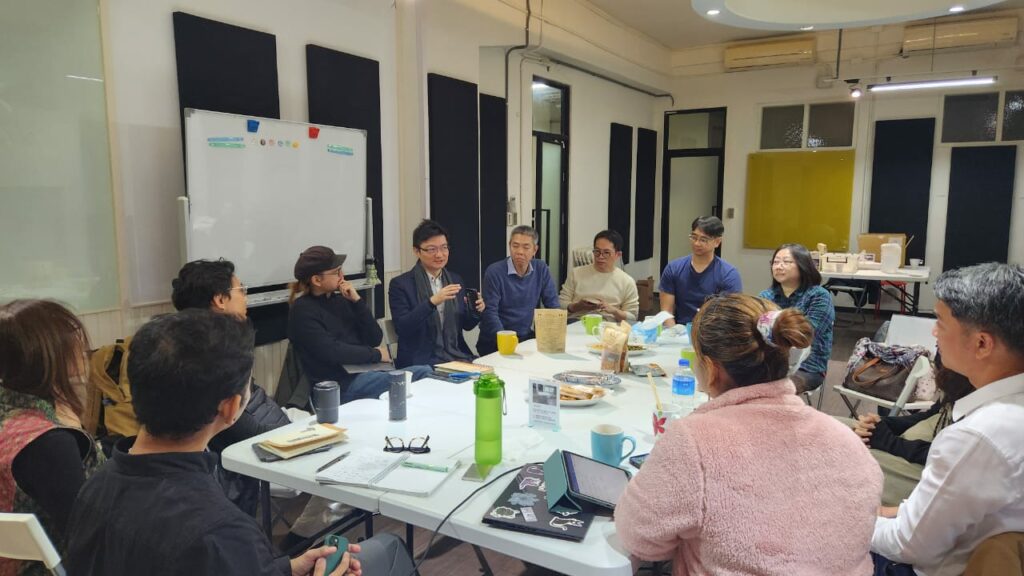
What We’ve Learned Along the Way
Through our journey in ASH, we’ve learned that collaboration isn’t just about the outcome—it’s about the process. It requires:
- Taking a risk.
- Investing in trust from the beginning.
- Embracing discomfort and uncertainty.
- Finding joy in the process of negotiating ideas.
- Recognizing power dynamics and working through them consciously.
- Being open to change—not everything will go as planned, and that’s okay.
During a public talk session, we were asked, “What is the definition of Art & Society for ASH?” Shefong from Trees Music & Art, our partner from Taiwan, responded beautifully:
“For us, this question is actually good, but we all feel that we don’t need to set one definition. Rather, we just need to explore more among our partners.”
This mindset captures the essence of our collaboration—remaining open, continuously exploring, and evolving together.
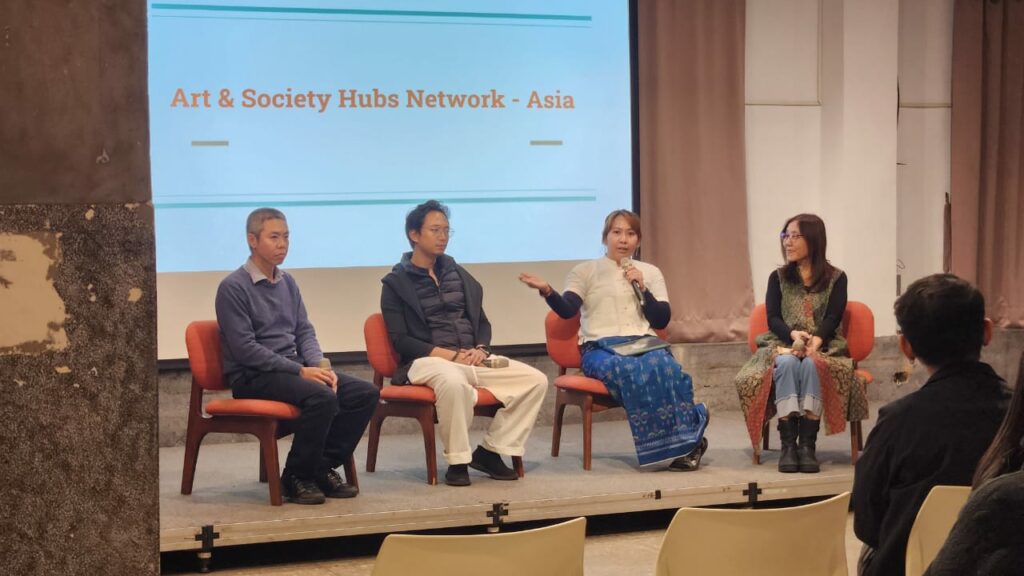
An Invitation to Reflect
So, we leave you with this question: If you were to step into a collaboration like this—where differences are not just accepted but embraced—how would you feel? What would excite you? What would challenge you? And most importantly, what would you be willing to let go of in order to create something new?
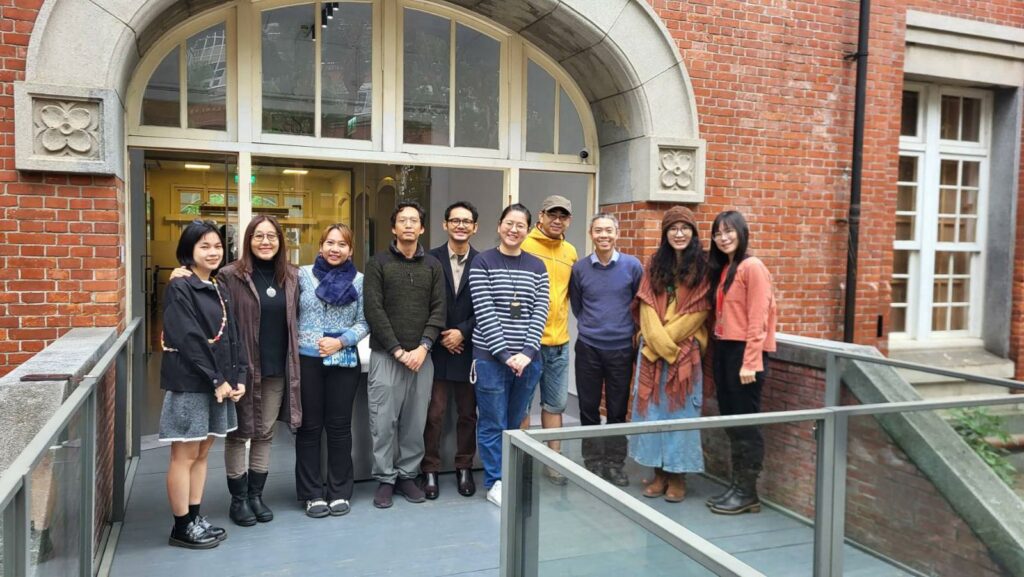
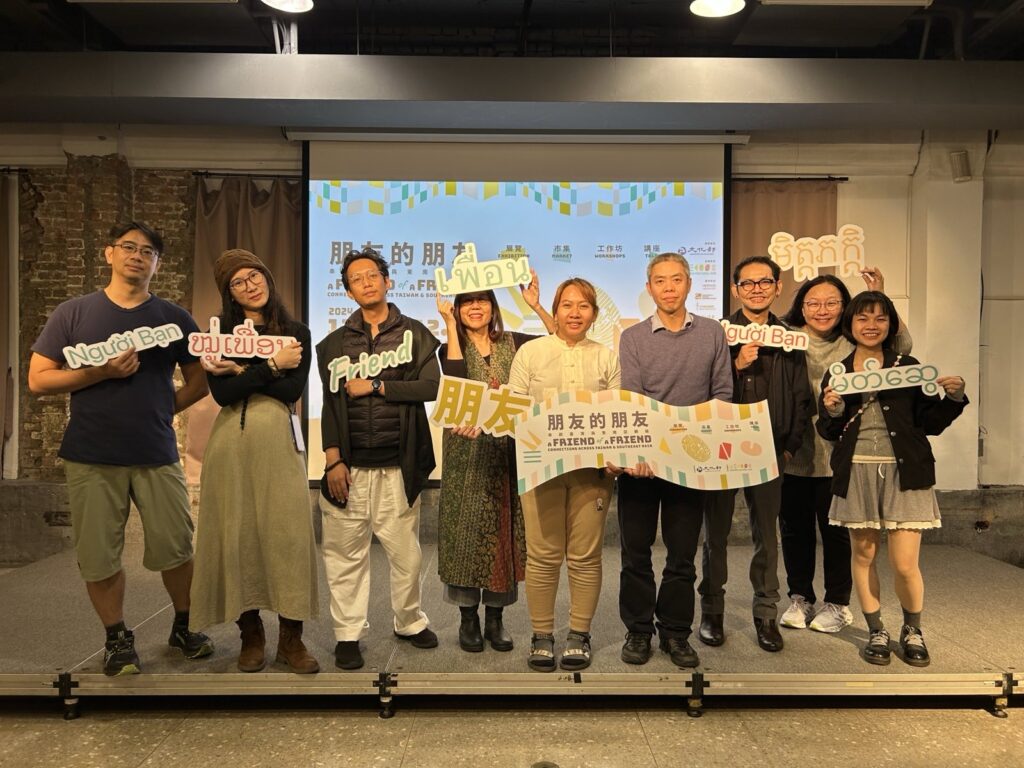
As the ASH Network evolves, it remains committed to its mission of empowering arts organizations across Asia to address societal challenges through collaborative and inclusive practices. Future updates, including several open calls for the Meeting Point 2025 in Vientiane, peer learning among partners during monthly online meetings, and sharing online sessions relating to mobility programs. Stay tuned for more developments as we continue to strengthen our network and build meaningful connections!
Learn More About ASH Network Asia
A special thanks to Panthea Lee, who did an excellent job facilitating some critical conversations on collaboration during our partners’ workshop. Her guidance helped shape the discussions in ways that were both thought-provoking and meaningful. You can learn more about her work [Here].